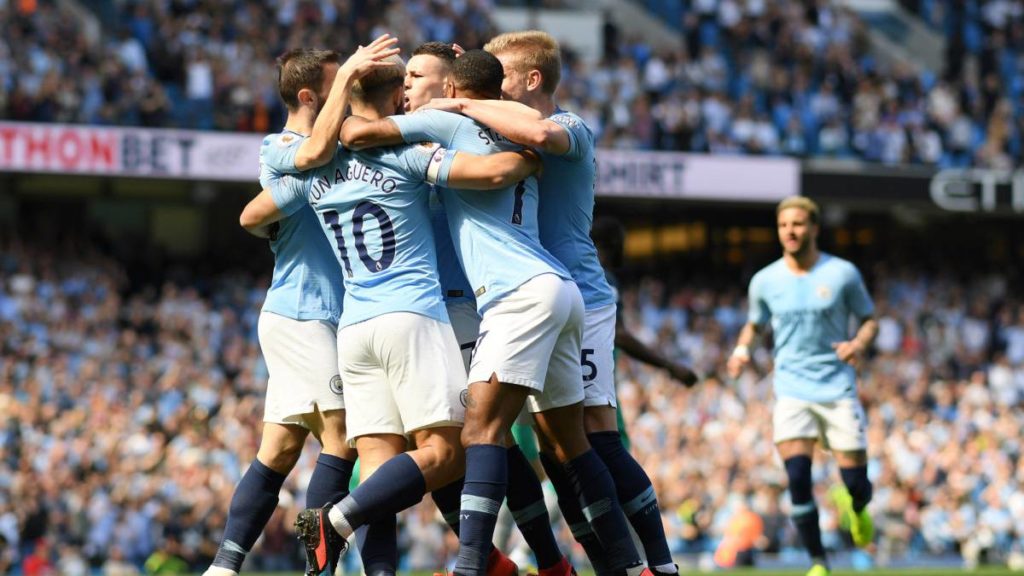Money And Soccer: Has The Game Gone?
The season has just come down on another season of soccer in Europe – which the natives of the continent prefer to call ‘football.’ In England, the lucrative and widely-viewed Premier League was won by Manchester City for the second consecutive season. While it was a cause for celebration for the fans of the club, it drew criticism from some quarters because of the amount of foreign money invested in the club to help them achieve their status. It would seem the complaints aren’t without some foundation – the club is currently under investigation for financial irregularities.

The fans of the club will be quick to point out that it’s not against the law to invest money into a team and help them to move forward, but the pace of City’s ascent to the throne of English football has been rapid. This season, they won an unprecedented domestic treble, adding both the League Cup and the FA Cup to their Premier League triumph. Twenty years ago, they were playing in the third tier of English football, having been relegated twice in the seasons prior. Their Maine Road stadium was falling apart around them, and the idea of competing at the same level as their illustrious neighbors Manchester United seemed like a ludicrous dream. Foreign investment, to the tune of hundreds of millions of dollars being pumped into the club to buy top-tier players and built a new stadium, has changed all that.
It’s not fair to single City out for criticism. The same pattern had already occurred at Chelsea years previously, when Russian billionaire Roman Abramovich bought the club and turned took them from mid-table mediocrity to champions of Europe. In Spain, Real Madrid is frequently accused of breaking the rules of financial fair play by signing up ‘Galacticos’ – star players from all over the world – for huge transfer fees. In France, Paris Saint Germain have paid eye-watering fees to secure players like Neymar and Kylian Mbappe to put themselves far out of the reaches of any other French club. Money makes the world go round, and brings success. But is it ruining the game for the fans?
Not Like The Old Days
Ask many a football fan of a certain age what they think about modern teams and players, and they’ll shake their head and tell you ‘the game’s gone,’ by which they mean that money now rules the decision making processes at a club far more than logic and the desire of the fans. Fear of losing Premier League status – and the vast sums of television money that come along with that status – prompts clubs to make rash decisions, like the sacking of Crystal Palace manager Frank de Boer after only four games of the season in 2017. It used to be the case that the rule of a manager was absolute, and a coach would be given time to mold and shape a team according to his vision. Now, if the results aren’t right immediately, they’re out on their ear before they’ve even had a chance to settle in the area they’ve just moved to.
The influx of money into football is routinely painted as ‘a good thing.’ We’ll continue to use the English Premier League as an example, because it’s the richest in the world when it comes to television and sponsorship money. When the Premier League became a reality in the 1992/1993 season, with a new television deal agreed with Sky Sports, all the top clubs became richer than at any point in their history. With each passing season, those riches increase. It’s understood that promotion into the Premier League is worth $100m to a football club in television money alone, to say nothing of enhanced merchandising and sponsorship opportunities.
Sponsors, Sponsors Everywhere
It would appear that nothing is off limits when it comes to sponsorship anymore either. There was enormous resistance when clubs started featuring corporate sponsors on their shirts during the 1980s. Now, shirt sponsorship Is just the tip of the iceberg. Some clubs have different sponsors on the front, back, and sleeves of their shirts. Often, the naming rights for an entire football stadium are sold to the highest bidder. Manchester City’s Maine Road may have been a damp and dingy stadium, but it was at least named after the Manchester street it stood on. Their new home, The Etihad Stadium, is named for an airline in Abu Dhabi that sponsors the club. The connection between the club and the community it serves is, in the eyes of some people, broken by crass sponsorship such as this.
When it isn’t the clubs picking up sponsors, it’s the players. From razors to hair products and sportswear, there’s nothing that high-profile football players aren’t called upon to promote and endorse. The likeness of a successful player can boost that player’s already significant earnings by millions. Cristiano Ronaldo stars in a game where he’s a skateboarder. Head to an online slots game website like Rose Slots, and you’ll see a player that looks remarkably like Ronaldo appearing as the face of the ‘Striker Goes Wild’ casino game. Football fans are likely to be attracted to play the casino game because of the connection between the game and their favorite player, but however much they might win if the jackpot pays out, it will never touch the amount of cash rolling into Ronaldo’s account every hour of every day.
Moving Out Of Reach
The end result of all this for some fans is that the game has simply moved out of reach, and is no longer relevant to them. A young player from the local area breaking into the first eleven of the team you supported used to be the fans’ representative on the pitch. He was from the same working-class background, and had endured the same struggles trying to make it big. Now, if a young player can even get close to the starting eleven by replacing an expensive foreign signing, they’ve probably been earning $50,000 a week or more since they were in their late teens. They no longer belong to the same world as the fans. Again, the connection between the players and clubs and the people paying to watch them feels broken.
Next season, the cheapest season ticket at Arsenal – which enables fans to watch all 19 home games of the forthcoming season – will cost over $1,100. The average annual wage in the area of North London they’re based in is $36,000, and the average cost of renting a property is $31,000 (although admittedly most people living there either live with a partner or in a shared house, thus lowering their burden). Arsenal has not won the Premier League since 2004. How much longer will fans of the club continue to part with an enormous chunk of their disposable income to watch as a team of millionaires fail to deliver success – not only at Arsenal, but at other comparable clubs? Perhaps the question should be whether, given the amount of television money they receive anyway, the clubs would even care if the fans stopped turning up?












